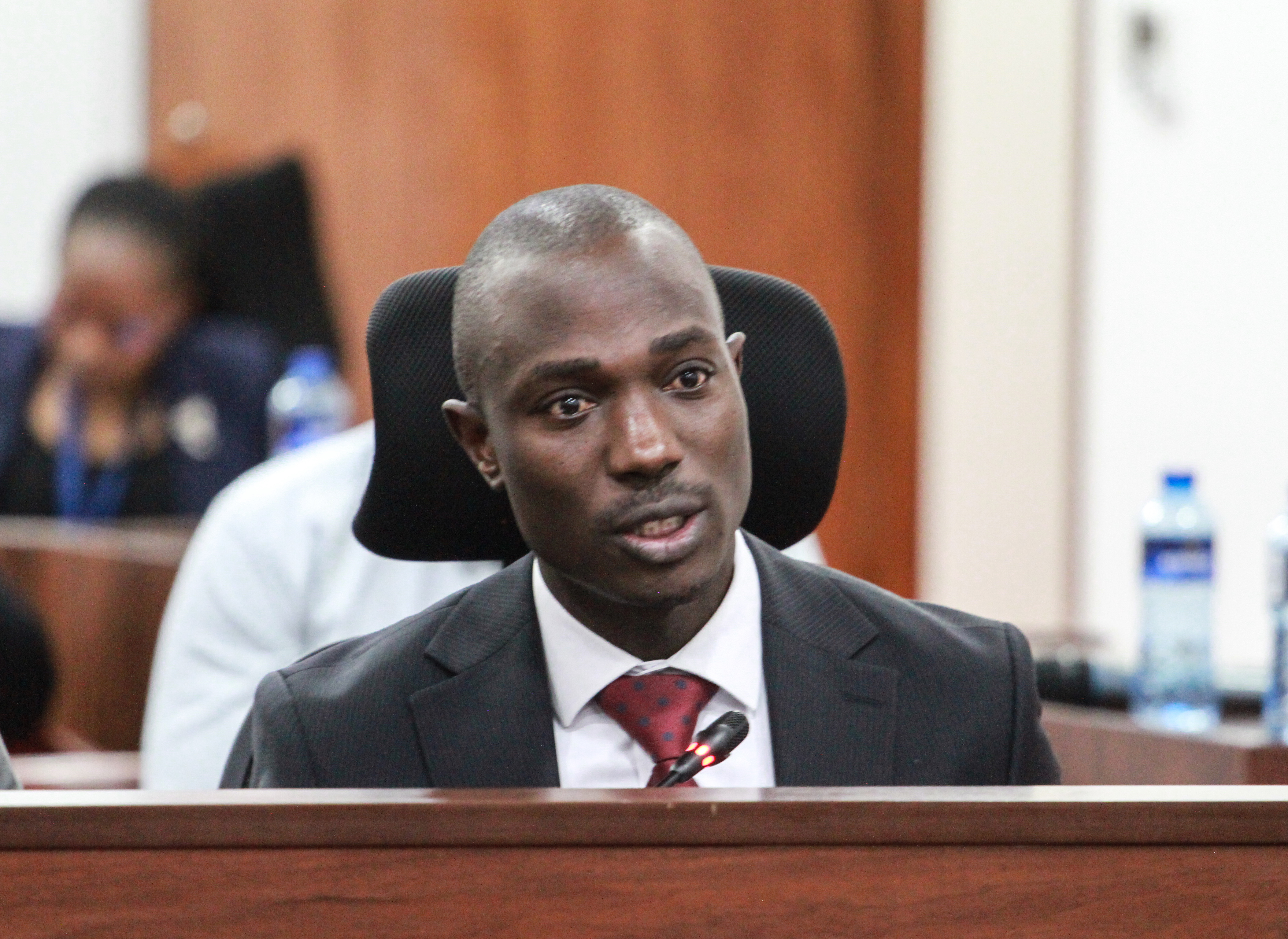 Boda Boda Safety Association of Kenya(BAK) president Kevin Mubadi before the National Assembly./HANDOUT
Boda Boda Safety Association of Kenya(BAK) president Kevin Mubadi before the National Assembly./HANDOUT
The Boda Boda Safety Association of Kenya (BAK) has strongly opposed the proposed Public Transport (Motorcycle Regulation) Bill, warning it could devastate livelihoods and disrupt the vital sector that employs millions of Kenyans.
Appearing before the Parliamentary Committee on Transport and Infrastructure, BAK described the Bill, sponsored by Kakamega Senator Boni Khalwale, as “retrogressive, punitive, and disconnected from reality.”
“This Bill doesn’t bring safety—it brings suffering. It doesn't protect livelihoods—it threatens to wipe them out,” said BAK President Kevin Mubadi, accusing the drafters of attempting to criminalize poverty through excessive regulation.
At the centre of the association’s criticism is the proposed creation of 47 county-level Motorcycle Transport and Safety Boards, despite the existence of the National Transport and Safety Authority (NTSA), which already regulates the sector.
Riders would be required to register again at the county level—a move BAK claims will increase bureaucracy, create confusion, and expose them to extortion.
“Why are we being asked to register again, to pay again, to verify again? This is not regulation. This is punishment,” said Mubadi. “It’s taking the little we earn and giving it to bureaucrats and cartels.”
The Bill also mandates all riders to be part of a SACCO, a requirement BAK says limits freedom of association and could lock out many who are already struggling.
“We are not against organisation—but it must be voluntary, not forced. This is how cartels begin. This is how dreams are killed,” Mubadi added.
Other contentious proposals include mandatory GPS tracking devices on motorcycles, formal contracts between owners and riders, and the provision of colour-specific helmets and jackets by sellers.
BAK says these conditions are unaffordable for most riders and could deepen corruption.
“We are barely surviving as it is. Now you want to make us pay for trackers, for coloured jackets, for registration twice over, for approvals we don’t need? This is not regulation—it is exploitation wearing the mask of policy,” Mubadi said.
Of particular concern is a clause limiting loads to 50 kilogrammes—far below what many boda bodas currently carry, especially in rural areas.
“A sack of maize weighs more than 90 kg. This law would criminalise the transport of food. It would harm farmers, kill small businesses, and starve rural Kenya,” BAK warned.
The association also criticised the push to devolve regulation entirely to counties, saying it would contradict existing laws and lead to confusion and inconsistent enforcement.
“This Bill isn’t fixing anything. It's a solution in search of a problem—and it risks undoing years of progress by burying riders under red tape, fees, and fear,” said Mubadi.
BAK is calling for the withdrawal of the Bill and for Parliament to initiate inclusive reforms to existing traffic and transport laws, without undermining those who power the grassroots economy.
“The boda boda sector is not a threat. We are not criminals. We are fathers, mothers, sons, and daughters. We are job creators and community builders. This Bill is a betrayal of our efforts, our struggles, and our contribution to the economy,” said Mubadi.













